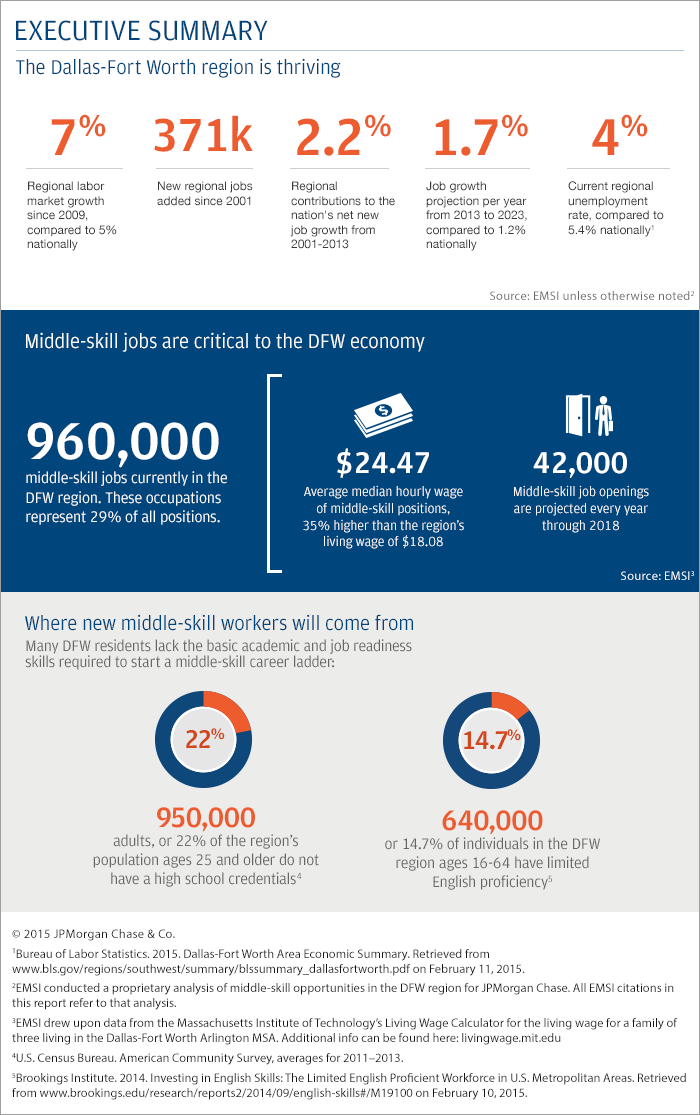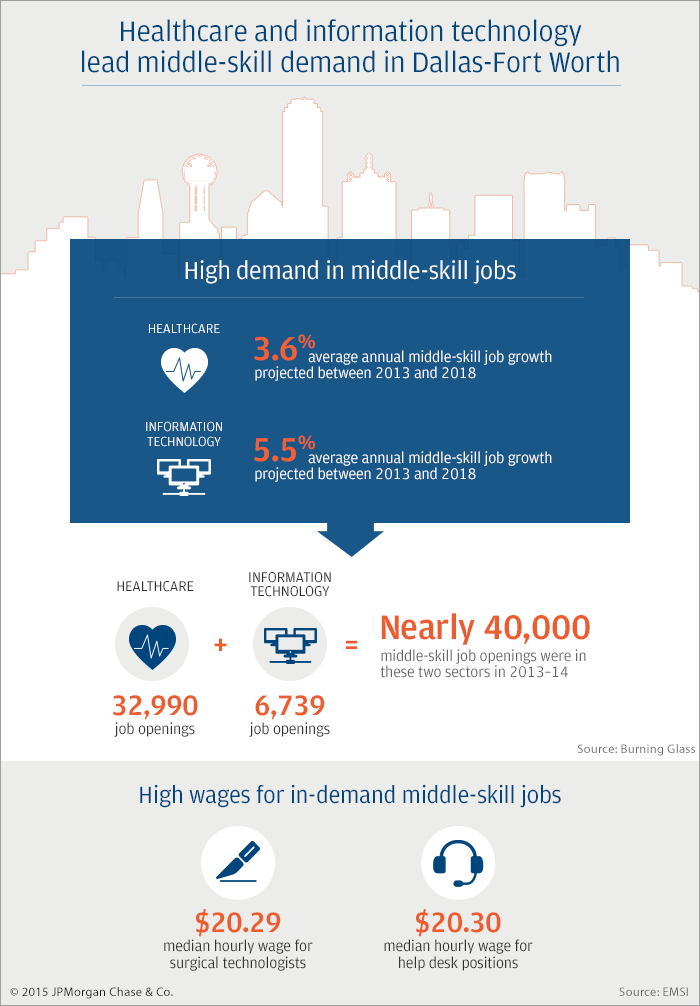Unemployment remains high across the globe, yet recent data reveals that employers are having trouble finding workers in key sectors. Through New Skills at Work, our five-year $250 million global initiative, we aim to help markets build a demand-driven workforce development system, and to prepare youth and adults for careers in high-demand, middle-skill occupations.
To advance this work, we are supporting data analysis in domestic and international markets: Chicago, Columbus, Dallas-Fort Worth, Detroit, Houston, Los Angeles, Miami, New York City, San Francisco, France, Germany, Spain and the United Kingdom. The goal is to help fortify regional economies for the future, and advance the vision that all residents have the opportunity for good jobs that enable them to support themselves and their families.
On May 21, 2015, we released the Dallas-Fort Worth Skills Gap Report which provides a comprehensive look at available middle-skill jobs in the healthcare and information technology industries. It offers data-driven steps city policy makers, community colleges, training providers and private sector employers can take to fill these critical, well-paying jobs.
Undeniably, the Dallas-Fort Worth region is thriving. The area is a magnet for new companies and new residents. The region ranks among the top three U.S. metro areas for business expansions, relocations and employment growth. This positive trend is projected to continue through 2023.
However, in dramatic contrast to the surrounding region’s economic prosperity, the city of Dallas has one of the highest concentrations of poverty in the nation. Many of these residents are unemployed or underemployed, preventing them from benefiting from the region’s economic growth. This opportunity gap is disproportionately affecting African-Americans and Hispanics, who represent a large and growing pool of potential middle-skill workers, just as the region needs to expand its talent pipeline.
Read the Full Report






